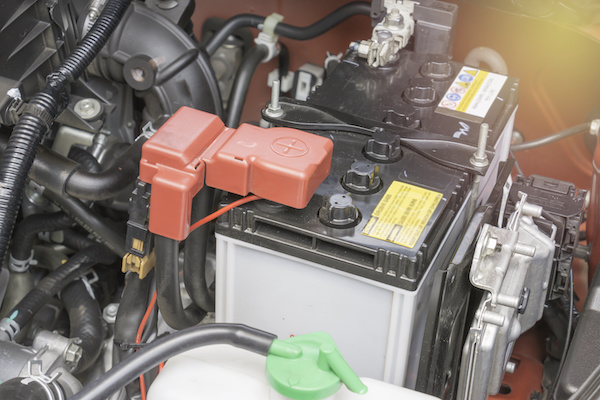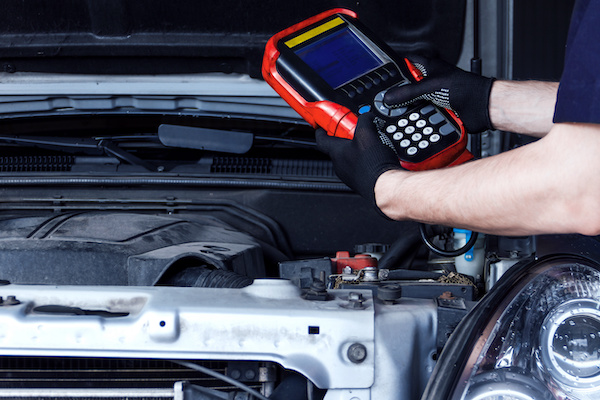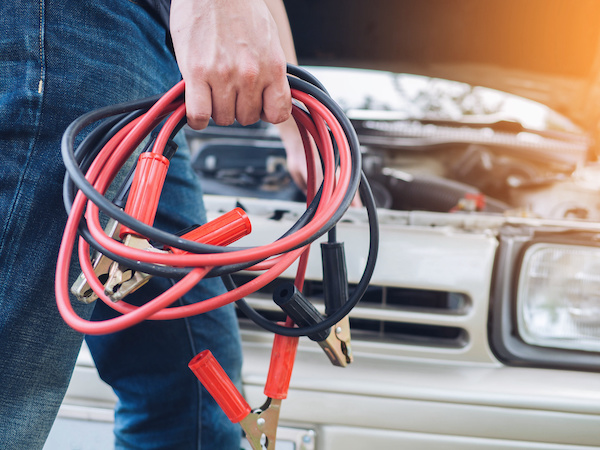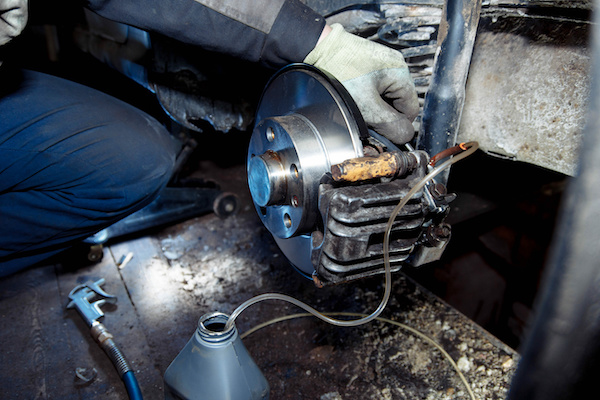Posted on 12/30/2022

A car battery provides your vehicle with an electrical current. The battery serves many functions, but primarily powers the starter and ignites the engine. It is paramount to keep an eye out for symptoms of a weakening battery. The following are five signs of a dying car battery: Engine Starts Slowly The first sign of a deteriorating battery is that the engine starts slowly. The less power the battery has, the slower the engine starts. Therefore, you should pay attention to how long it takes the car to start after turning on the ignition. Get the battery checked as soon as you notice any lags. The Engine Will Not Start Worse still, your engine may not start at all. If your car refuses to start after you turn on the ignition, it means your battery is dead. You will typically hear a clicking sound or a long crank in such a case. If the engine starts eventually, the issue is due to a damaged starter. Heavily Coated or Corroded Battery. If the engine takes a while to start after tur ... read more
Posted on 11/29/2022
.jpeg)
If it has anything to do with your brakes, it's important. When the brake pad is pressed down, your brake rotors operate by spinning and slowing down the wheels. The friction from this process produces heat that the brake rotors experience every time you press the brake pedal. Over time, the surface of the brake rotors becomes uneven due to the massive amount of heat experienced each day. This uneven wear and tear are what is referred to as warping. When your brake rotors start to warp, your brakes will become less effective and give an inconsistent grip when used. What Causes the Brake Rotors to Warp Unevenly? Extreme heat- Although extremely rare, brake rotors can get so hot that they are permanently warped. In some cases, the brake rotors can even get worn down by the brake pads due to the brittle form the brake rotor assumes when at high temperatures. Glazed coating- In some situations, the heat generated from the friction causes some materials to break free and form a lay ... read more
Posted on 10/31/2022

Like a human with a brain, a car needs a computer to manage its various systems. With the evolution of technology, cars have advanced, and there has been the need to improve their computers because of the complications that came with the technologies. That's where OBD comes in. OBD, also called On-Board Diagnostics, is a technological advancement that entails a computer that can manage your car's various systems and report diagnostic trouble codes. It is a computer system inside your vehicle that helps to track and regulate its performance. A vehicle has a network of sensors that helps the computer system alert you in case of a mechanical malfunction. When you go to the mechanic, they plug into the OBD and collect all the vehicle's information to diagnose the problem efficiently. What are the benefits of OBD? Careful vehicle maintenance is key to the health of your car. The OBD system will therefore be beneficial to you in the following ways: It aids in fast diagnosis ... read more
Posted on 9/29/2022

Car electrical problems can occur at any time. While some may be easily fixed, others can be more complicated and expensive to repair. The electrical system in your vehicle is responsible for powering everything from the headlights to the dash lights and all of the accessories in between. When something goes wrong electrically, it can be difficult to pinpoint the root of the problem. However, there are some telltale signs that your car has electrical issues. You should look out for these signs. 1. Dead battery: A dead battery is the most common car electrical problem. It can be caused by a number of factors, including leaving your lights on or letting your car sit for too long without starting it. 2. Alternator issues: If your car's alternator is not working properly, it can cause your battery to die. Alternator problems can also cause your headlights to dim or flicker. 3. Starter issues: A faulty starter can prevent your car from starting at all. This is usually caused by a pro ... read more
Posted on 8/30/2022

You will probably need to change your automobile maintenance plan to reflect your light driving habits if you reside in a city or simply don't use your car very often. When should you change your car's air filters, rotate your tires, and change the oil? When should you conduct basic maintenance on your vehicle? Is it more or less frequently than what the owner's handbook suggests for mileage intervals? The second-largest purchase most people will make in their lifetime is an automobile. Frequent maintenance is necessary for properly maintaining your car, including: Regular tire rotations Oil changes Air filter replacements Measurement Of Use Seriousness Follow the "severe usage" car maintenance plan in your owner's manual, which calls for more regular service, if you don't drive your car often or just use it for short excursions. Severe journeys are those that are brief and stop-and-go so the engine doesn't have time to warm up properly ... read more
Posted on 7/27/2022
.jpeg)
Spark plugs are crucial components of your vehicle’s ignition system. After all, a vehicle will never start without them. They are essential in transmitting an electrical signal received from the ignition coil at a specific predetermined time. This creates a spark in the combustion chamber, automatically igniting the air-fuel mixture within the chamber. Operating a car with failing spark plugs can cause many issues, especially for the engine, that might be too costly to repair. The following are some of the red flags that might indicate a bad or failing spark plug: Hard Starts and Rough Rides Sometimes, your car might take too long to start. Like most drivers, you might suspect an empty tank or dead battery, but failing spark plugs might be the culprit. It might indicate that your spark plug is experiencing some trouble sparking an ignition. Hard starts might quickly translate to serious ignition complications if not timely handled. Besides, your e ... read more
Posted on 6/29/2022

Have you ever reached for the brake pedal just for it to feel soft or spongy? When you catch signs of a soft brake pedal, you should never leave the issue ignored. Most of the time, your brakes are spongy because of air being trapped in the brake lines. What Does Air in the Brake Line Mean? Some cars, SUVs, or trucks have a hydraulic braking system. This system is air-tight and relies on brake fluid to do most of the heavy lifting. When you engage your brakes, the pressure of the fluid is moved to have your calipers clamp your brakes and stop your wheels. The fluid itself flows through the brake lines. So how does air come into play? Driving on worn brake pads, running low on brake fluid, and overheating your brakes can lead to trapped air in your brake lines. When this happens, you may notice some red flags: Soft or spongy brake pedal Brake pedal goes to the floor Longer stopping distance or weak stopping power If you notice any of the signs above in your vehicle, please ... read more